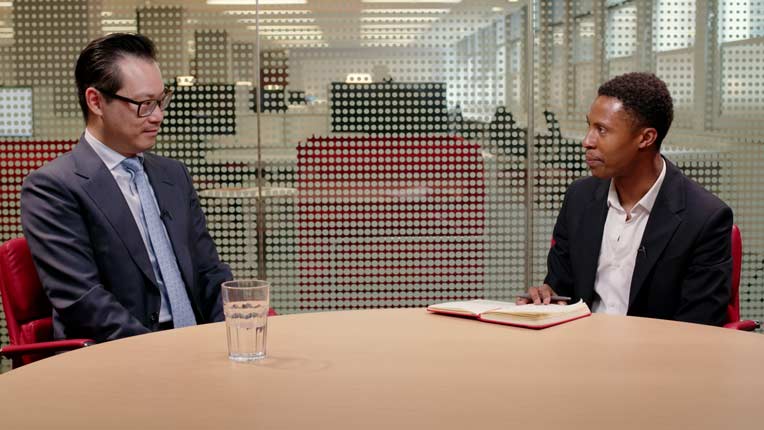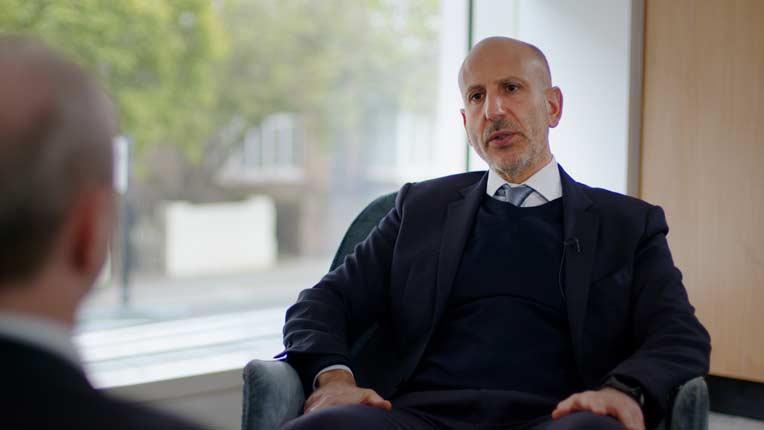OS: Now, slow and steady wins the race or so we're told. Indeed, there is one fund manager out there who is looking for tortoises rather than hares. Alistair Wittet is Manager of the 5-Star rated Comgest Growth European Compounders Fund. He joins me now.
Alistair, thanks for your time. Could you just run us through exactly what we mean by tortoises and hares?
AW: Yes. So, what we're talking about are companies that are able to deliver steady growth year in year out. I think that's what really differentiates the tortoise from a hare. So, these are businesses that are delivering maybe mid to high single digit earnings growth, but they do so even in difficult times, so companies that are able to grow even during a recession, companies that were able to grow even through COVID. And these businesses, if you add up the compounding of all that growth, end up delivering, in many cases, more growth than those exciting companies that accelerate for a few years and then have a big reset during difficult times.
OS: Sure. And I'm sure you're pleased to hear that you're not in the studio with us today for a grilling on performance. Performance on your fund has been good. What are the companies contributing to that? What are the examples of the tortoises, so to speak?
AW: Yeah, there's a few. I mean, if we take very long periods of time, a company like Nestlé is a classic tortoise. It's not that sexy. People don't talk about it that often. But it's a business that, let's say, over the past 20 years has delivered steady 6% on average earnings growth per year. And it supplements that growth, and this is the beauty of tortoises is that they generate huge amounts of cash, and they're able to supplement that growth with some acquisitions in some cases or by buying back their shares or by paying a generous dividend. And in the case of Nestlé, that 6% earnings growth has translated into double-digit earnings per share plus dividend growth or total return, if you like, for shareholders. So that's the example of the sort of company that we're looking for.
OS: And are there any other examples of that in the portfolio that have been particularly fruitful?
AW: Absolutely. I mean, in recent times, RELX has been a very strong performer. And this is really the holy grail for us as a compounding investor are those businesses that are able to compound at a steady pace but then even go through periods of acceleration. And RELX is a classic example of a business that has been accelerating as they have continued to better package the data they have and sell that data better. And so, they've been going through a multi-year acceleration of growth and that has, of course, been accompanied by a re-rating of the shares.
OS: And just finally, I understand you have a relatively interesting technique for categorising the impact of AI on the companies that you invest in. Could you tell us a little bit more about that?
AW: Yeah. So, we try not to be too clever about this. This is an emerging technology, and we have to stay humble as to the impacts of that technology. But what we can do is categorise the portfolio into three very broad buckets, the first bucket being those businesses that we think are least likely to be impacted. These are the businesses that are selling products, Hermès bags, Louis Vuitton bags, or bottles of whiskey, or cognac, in the case of Pernod Ricard. So those are businesses that we think will be least impacted. There will be some impacts, but it will probably be quite minimal, and that constitutes two-thirds or so of the portfolio.
Then we have a third of the portfolio where we think either there will be a quite clear positive impact, or where we think the impact is less clear, and therefore we need to be quite vigilant. So where do we see a positive impact? Companies like ASML or Accenture, these are businesses that will benefit from the move to AI as they supply either services or products to their customers in that space. And then there are businesses where it's less clear. And these are businesses in the software space, or indeed in the data space where AI could be a threat. It could also be an opportunity. And I mentioned RELX earlier. For now, it's proving an opportunity for RELX. But that's just a bucket where we're think we need to be a little bit more vigilant. So those are the three buckets that we have.
OS: Interesting. Thank you very much. For more on equity investing and indeed the parables for modern investors, check out any of our editorial websites internationally. Until next time, I've been Ollie Smith for Morningstar.




























